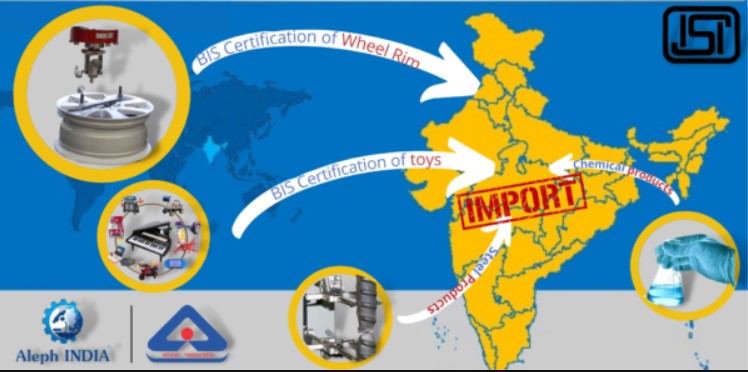
Many foreign manufacturers await BIS nod
- July 11, 2024
- 0
Many Vietnamese companies have been awaiting certification from the Bureau of Indian Standards for several months.
Vietnam’s trade ministry has written to New Delhi for expediting BIS certification for it’s companies, stating that the delays are hurting business. Most of these companies are engaged in the trade of shoes or steel, where QCO’s are implement already.
However, manufacturers from other countries too are facing delays in securing BIS certification, especially Chinese companies.
Applications for BIS certification have gone up following an increase in Quality Control Orders by New Delhi aimed at curbing substandard imports as well as boosting domestic production.
The QCOs require Indian traders to produce BIS certificates of the manufacturing facility while importing goods, or face penalties.
Due to India’s free trade agreement with Asean countries, tariffs can’t be levied to balance the trade. In that scenario, QCOs are an effective non-tariff barrier that can be used for the benefit of the Indian industry to restrict at least the cheap and substandard quality imports.
QCOs are issued by different line ministries and standards of products are prepared by the Bureau of Indian Standards, an arm of the ministry of consumer affairs.
The number of applicable QCOs has increased sharply in recent years—from 14 such orders covering 106 products in 2014 to 156 QCOs covering 672 products currently.
Domestic manufacturers are also wary of Chinese companies using Vietnam and other countries for routing their products to India by leveraging New Delhi’s free trade agreement with the Association of Southeast Asian Nations bloc, of which Vietnam is a member.
India remains one of the few large economies globally with a growing appetite, making the country an obvious destination for exports.
So if the government doesn’t take safeguard measures like QCOs, imports from countries like Vietnam, China and other Asean countries will surge at the expense of local manufacturers, who are heavily investing in expansion, Countries like China can also set up manufacturing sites in Vietnam to take advantage of the FTA with India.
China, with a global manufacturing capacity, accounts for more than half of the global production. But as China is reeling under challenges in the domestic real estate sector, the country’s steel as well as plywood and other wood based industries are left with surplus production.
Chinese mills have in recent years flooded global markets with these products, dragging down prices.
👇 Please Note 👇
Thank you for reading our article!
If you don’t received industries updates, News & our daily articles
please Whatsapp your Wapp No. or V Card on 8278298592, your number will be added in our broadcasting list.

































































